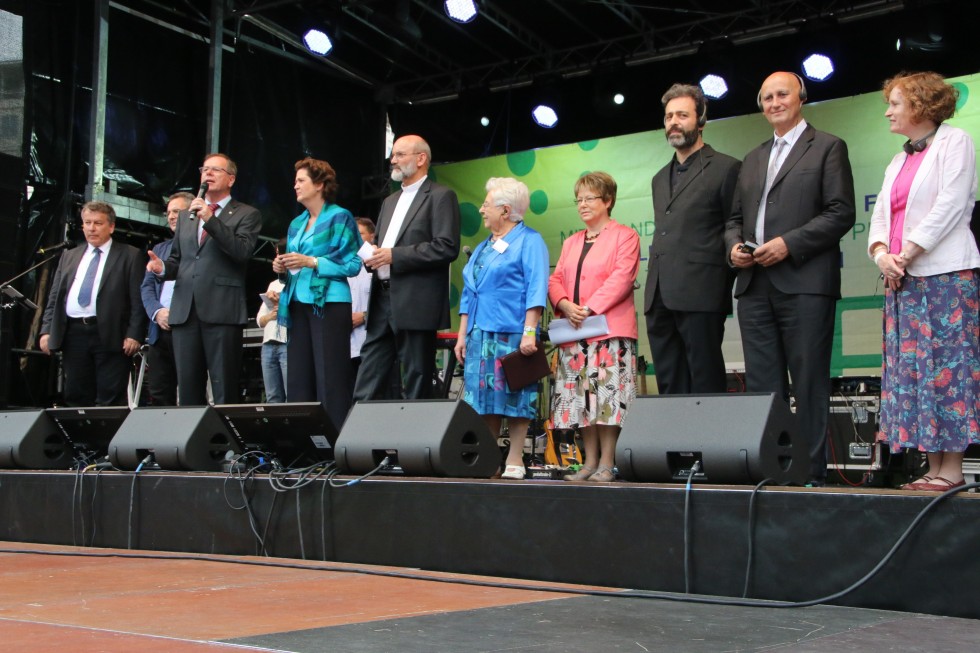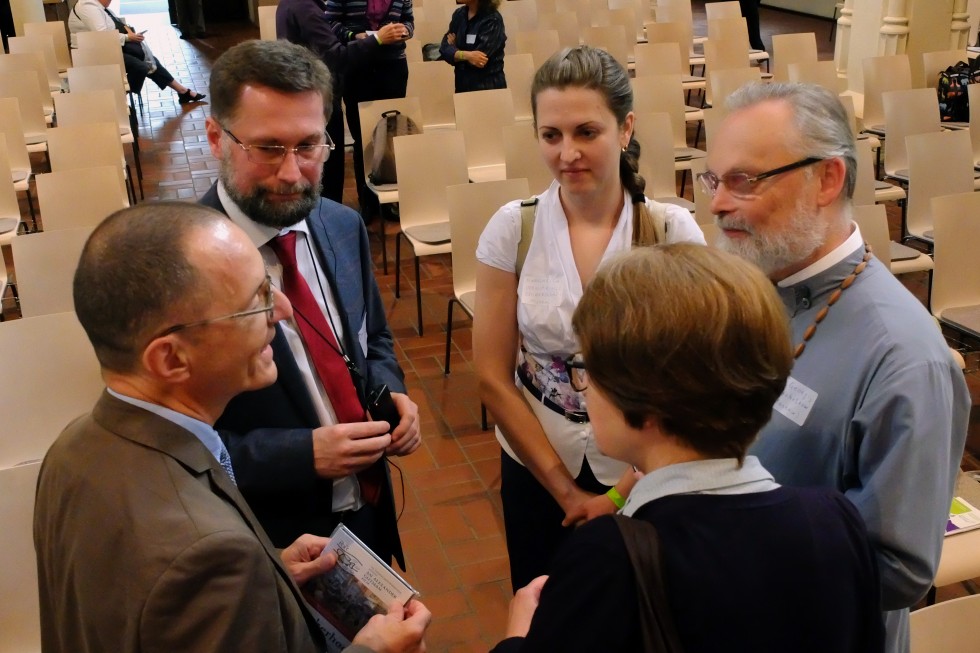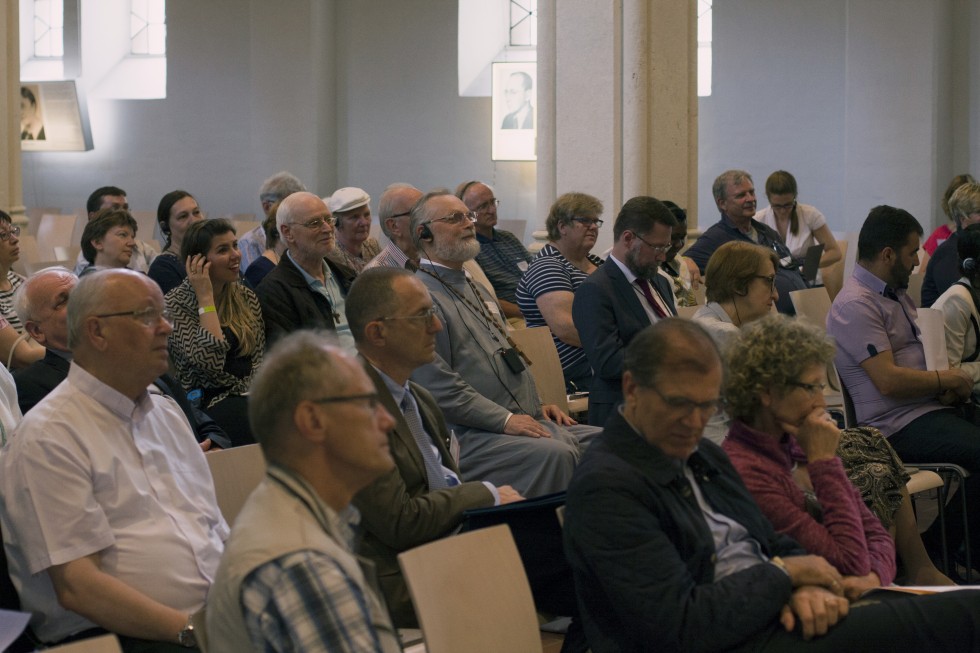Discussions on Christian Unity: Representatives of various Church Movements meet in Munich
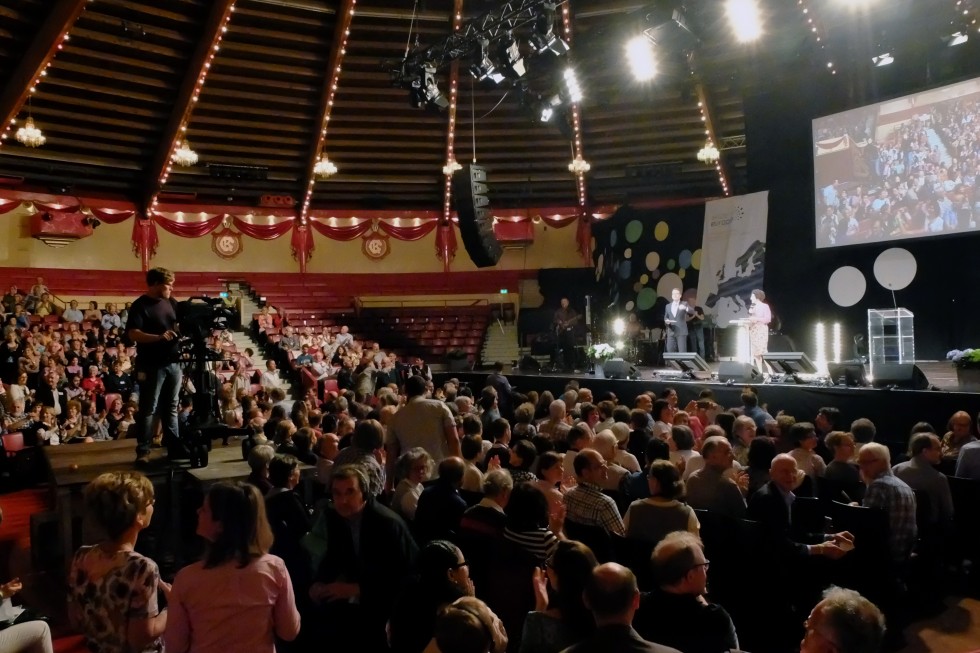
Christian communities and movements can unite polarized European society, believes Bishop Heinrich Bedford-Strohm, Chairman of the Board of the Evangelical Church in Germany. “For Churches, Christian unity opens prospects that are wider than what we can imagine,” he said.
Cardinal Reinhard Marx of Munich, President of the German Roman Catholic Conference of Bishops, emphasized that the precondition for such unity is perfect reconciliation, and added that the source of strength for achieving such reconciliation is a profound encounter: “The other person gives us strength and helps attain to mutual understanding”.
“They will continue to run circles around us until we solve Europe’s most pressing issues,” said Gerhard Pross, Chairman of the Organising Committee for the congress and ex-General Secretary of YMCA-Germany. “Europeans must learn to live together.” “Our fifteen years of experience as Christian communities and movements learning to live together has been greatly enriching; it is a profound process of reconciliation to form a community in diversity,” he remarked with reference to the Christian movement “Together for Europe”, who organised the Munich congress.
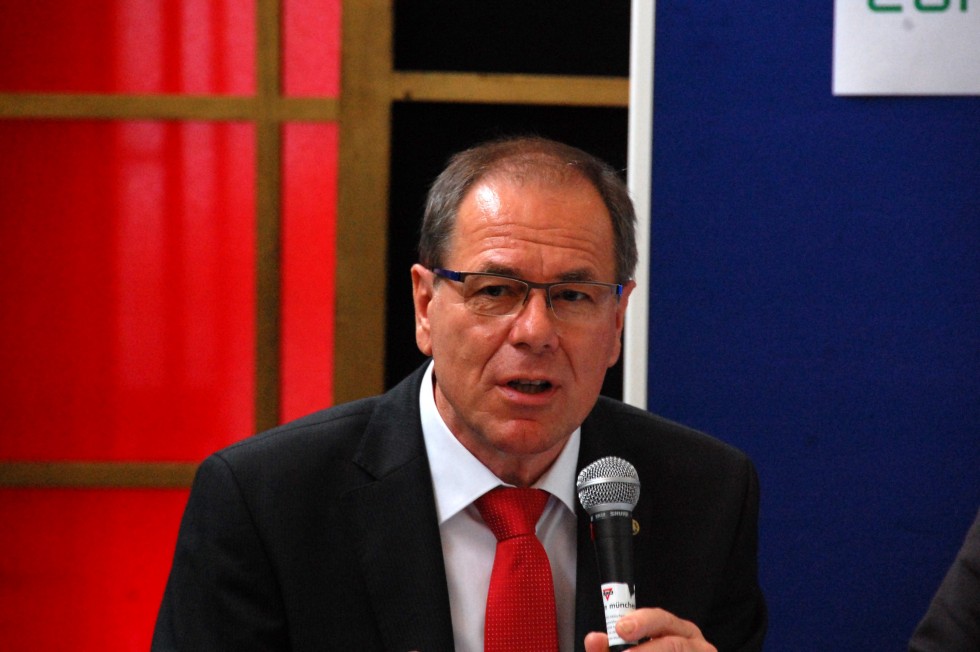
Gerhard Pross, Chairman of the Congress Organising Committee, one of the founders of the “Together for Europe” initiative
“Together for Europe” brings together more than 300 church movements and communities from different denominations, all seeking to overcome the tragic division between the churches. The movement was initiated by the leaders of two Roman Catholic lay movements – Chiara Lubich, founder of the Focolare movement, and Andrea Riccardi, founder of the Community of Saint Egidio. YMCA-Germany, the Schoenstatt German Catholic Movement, other major Catholic and Protestant movements and various Orthodox representatives are also among the most active participants in the movement. Together they strive to seek answers to the main challenges facing European society through promoting peace, safeguarding life and the environment, forming a just economy, contributing to urban development and building brotherly relations between Europeans.
It is this particular experience that enables European Christian communities “to oppose the centrifugal forces of fear with a path towards a new togetherness in hope,” maintains Gerhard Pross.
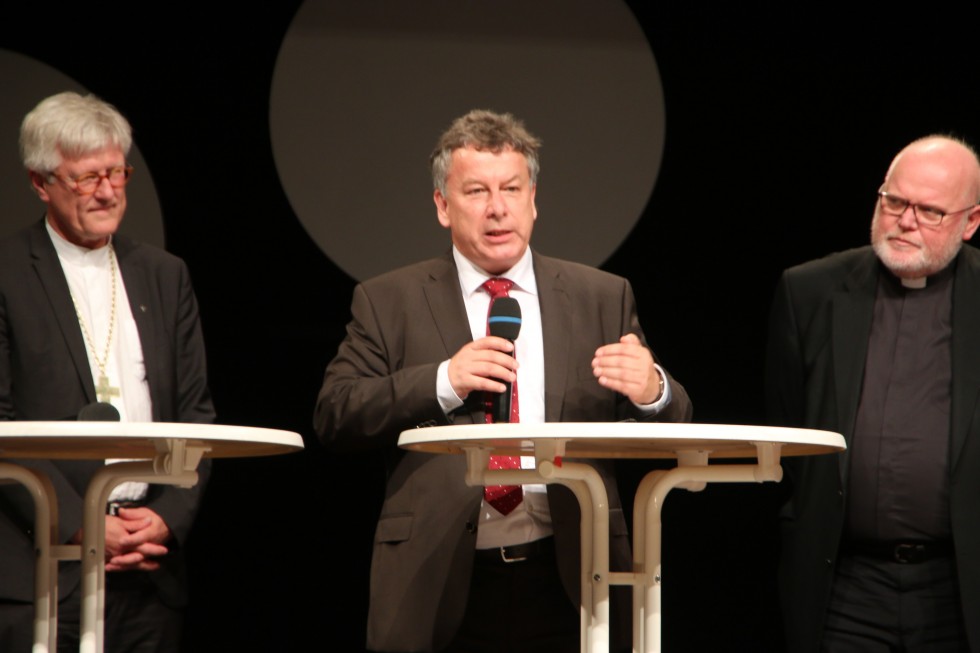
Pastor Thomas Römer (YMCA in Munich, the Lutheran Evangelical Church in Bavaria); Evangelical Bishop Heinrich Bedford-Strohm, president of the Lutheran Confederation in Germany (left); Cardinal Reinhard Marx of Munich, president of the German Roman Catholic Conference of Bishops (right)
Serving as “Translators”
“You are important pioneers in the experience of mutual enrichment and reconciliation,” said Cardinal Walter Kasper, former President of the Pontifical Council for Promoting Christian Unity, addressing Congress participants. He predicted that in the foreseeable future a declaration of doctrinal consensus will be made between the Evangelical-Lutheran and the Roman Catholic Churches on the subjects of the Church, liturgical offices and the Eucharist.
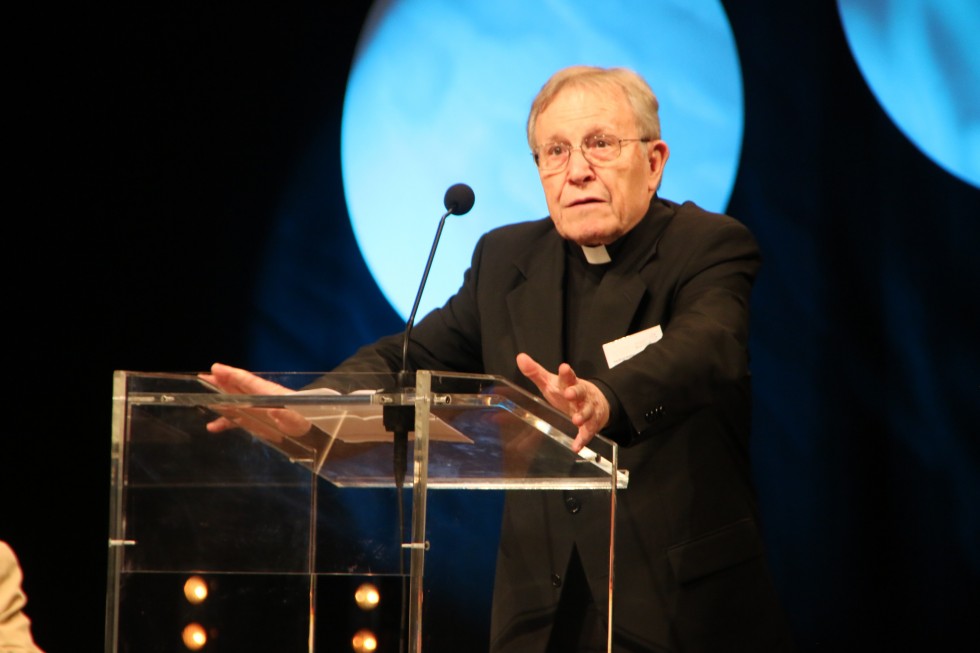
Cardinal Walter Kasper, ex-President of the Pontifical Council for Promoting Christian Unity (2001 – 2010)
On the first day of the Congress, there were nineteen round table discussions, where representatives of various Christian communities presented on their life experience and spoke about projects they have implemented. Participants also shared their personal testimonies. One of the forums discussed the issue of the often-tense relationship between the institutional churches on the one hand, and various movements and communities on the other. Speaking on the place of communities in church life, Franz Zeeb, a representative of the Board of the Evangelical Church in Germany, noted that communities are able to “provide ‘translation’ services, as they are fluent both in the language of contemporary society and in the church’s language of faith.”
An Orthodox View from Russia
Fr. Georgy Kochetkov, the founder of the Transfiguration Brotherhood, which is the largest informal fellowship of believers within the Russian Orthodox Church, was invited this year to present on the experience of Christian movements in Russia. “The issue of Christian unity in our country was essentially resolved during the time of the GULAG – a time in which the church in Russia endured particularly brutal persecution at the hands of the Soviet authorities,” said Fr. Georgy. “In Soviet concentration camps, prisoners suffered to such an extent that the question of denomination became insignificant. Evidently in those conditions, the very dialogue of life for the sake of life itself enabled mutual reconciliation and brotherhood, also between people of different confessions.”
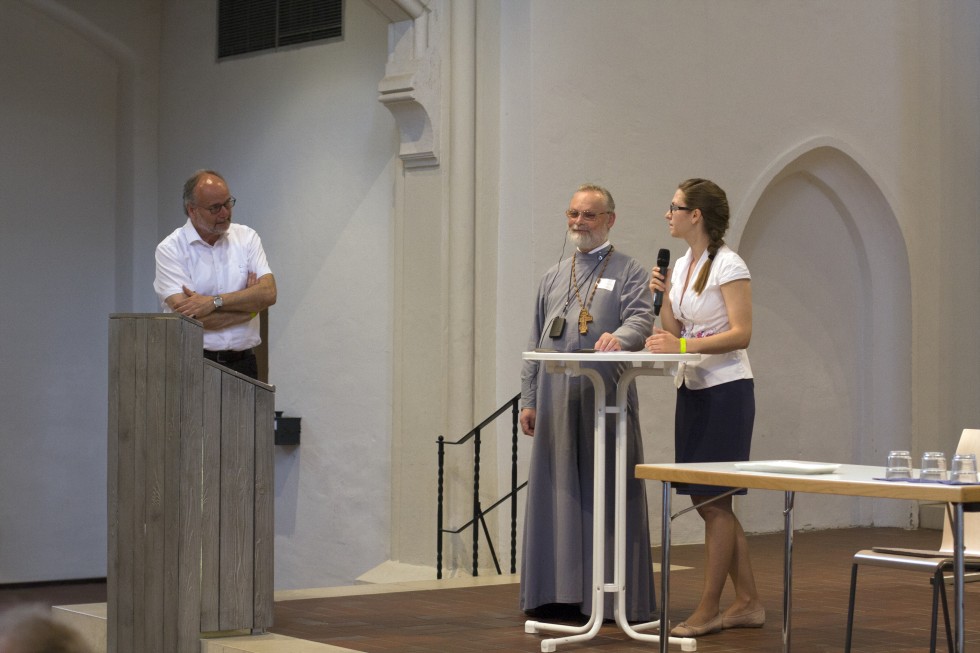
Fr. Georgy Kochetkov, founder and spiritual father of the Transfiguration Brotherhood, Rector of St. Philaret’s Christian Orthodox Institute
Perhaps of even greater importance was the search for unity within the Orthodox Church during the Soviet period, added Fr. Georgy. “Under harsh ideological pressure and in times when the unspoken law against ‘gathering more than two or three together’ was fully active, brotherhood and community nevertheless sometimes arose when people overcame their fear and division to meet together in Christ,” he said. “This is how our movement arose out of a circle of believing friends in Moscow in the late 1960s and early 1970s.”
Fr. Georgy spoke to those assembled of the good relations the Brotherhood has with movements from other Christian denominations, mentioning also their experience of joint prayer. Referring to the current stage of dialogue, Fr. Georgy noted that “today evil is no less aggressive than it was in the terrible 20th century, and we must oppose this aggression with the traditional Christians means: an abundance of love, faith, and trust. There will never be any other viable alternative in practice or in our hearts.” Fr. Georgy is convinced that Christians “ought to feel more acutely the pain that arises from lack of unity among Christians, as indeed from any lack or incompleteness in church life, not only as regards inter-confessional relations.”
A Culture of Trust vs. Insecurity about Tomorrow
On the second day of the Congress, the focus of discussion was the social and political role of spiritual movements in European society. Representatives of Christian communities, politicians, official church speakers, and specialists in various economic and social spheres attended a plenary session and seventeen round tables.
As noted by Michael Hochschild, sociologist and professor of the Time-Lab Research Institute in Paris, “in a time of profound systemic crisis in modern European society” Christian communities can offer people alternative models for life. He called spiritual movements an important force at the grassroots of the church. At the same time, they can play a decisive role in working toward unity in the life of the churches to which they belong. “Only a reconciled church can make a credible contribution to reconciliation. When churches bear witness with their culturally creative force, they make it clear that there is an alternative to the current crises, indeed there is a tomorrow…”
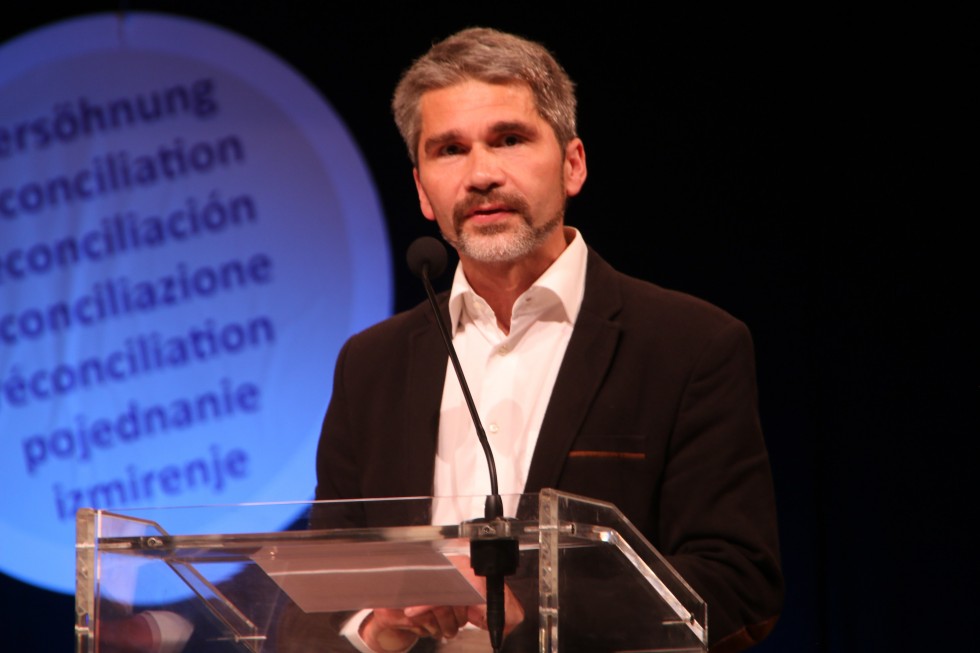
Michael Hochschild, sociologist, Professor at Time-Lab (Paris)
Herbert Lauenroth, an expert in intercultural studies at the Ecumenical Centre of Ottmaring, regards Europe’s current situation, fear and insecurity in tomorrow as a reaction to a feeling of existential narrowness. At the same time, he sees it as a challenge. If we don’t shy away from the challenge, it can stimulate the search for new baselines to orient our life, based in the experience of faith. “God then diminishes fear, and this is the basis for a new and necessary culture of trust in Europe,” he said.
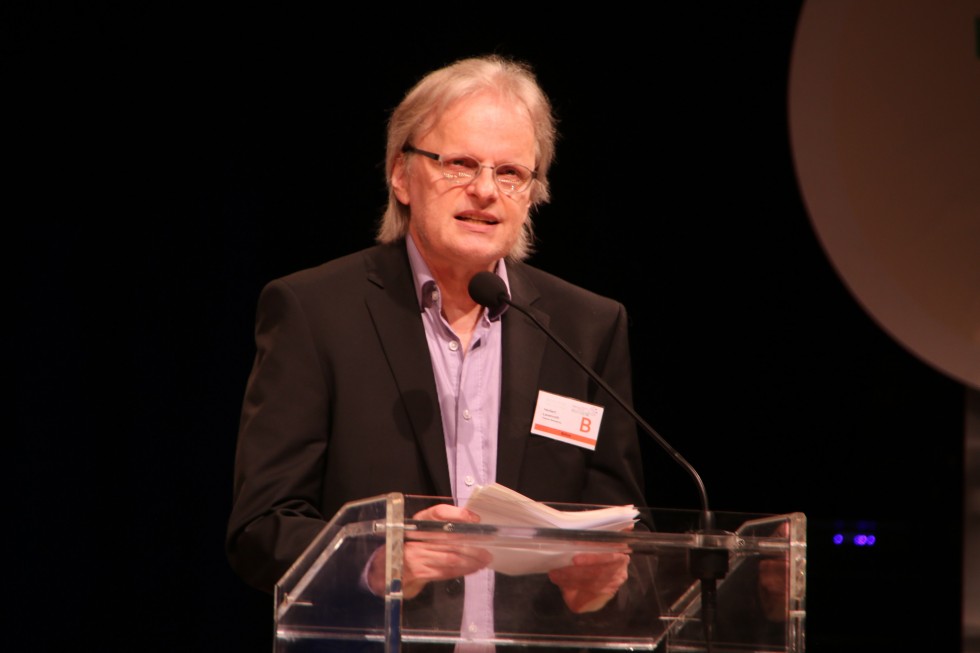
Herbert Lauenroth, expert in intercultural studies at the Ecumenical Centre of Ottmaring, representative of the Catholic Focolare Movement
The closing ceremony of the Congress was held on Karlsplatz, one of the largest squares in Munich, where Christians of different denominations from 32 countries and 200 movements and communities participated in a symbolic event, showing the church's will for unity and reconciliation.
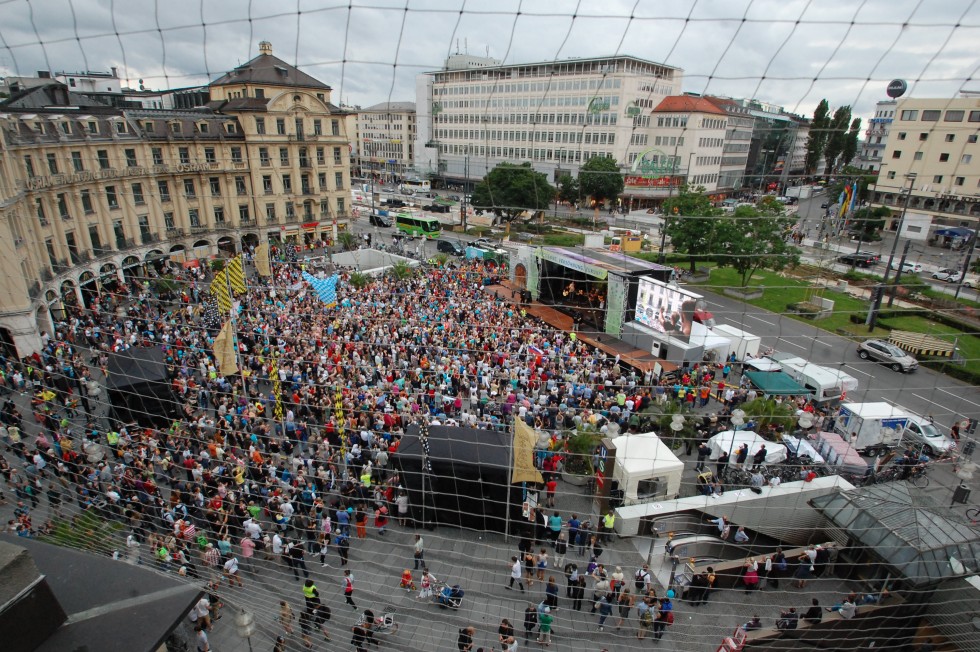
The Congress was attended by leading experts on interreligious dialogue and chairmen of the world's largest Christian movements and international organizations, such as:
Rev. Dr. Olav Fykse Tveit, General Secretary of the World Council of Churches,
Maria Voce, President of the Focolare Movement,
Marco Impagliazzo, President of the Community of Saint Egidio,
Andrea Riccardi, Founder of the Community of Saint Egidio,
Professor Miroslav Volf of Yale University
Metropolitan Serafim (Joanta) of the Romanian Orthodox Church,
Bishop Seraphim (Sigrist) of the Orthodox Church in America,
Fr. Christophe d'Aloisio from Belgium, representing the Patriarchate of Constantinople, and one of the pioneers of the "Together for Europe" movement.
Video messages from Pope Francis and Patriarch Bartholomew were also presented. The Congress was held under the auspices of UNESCO, the Council of Europe, the European Commission and the European Parliament.
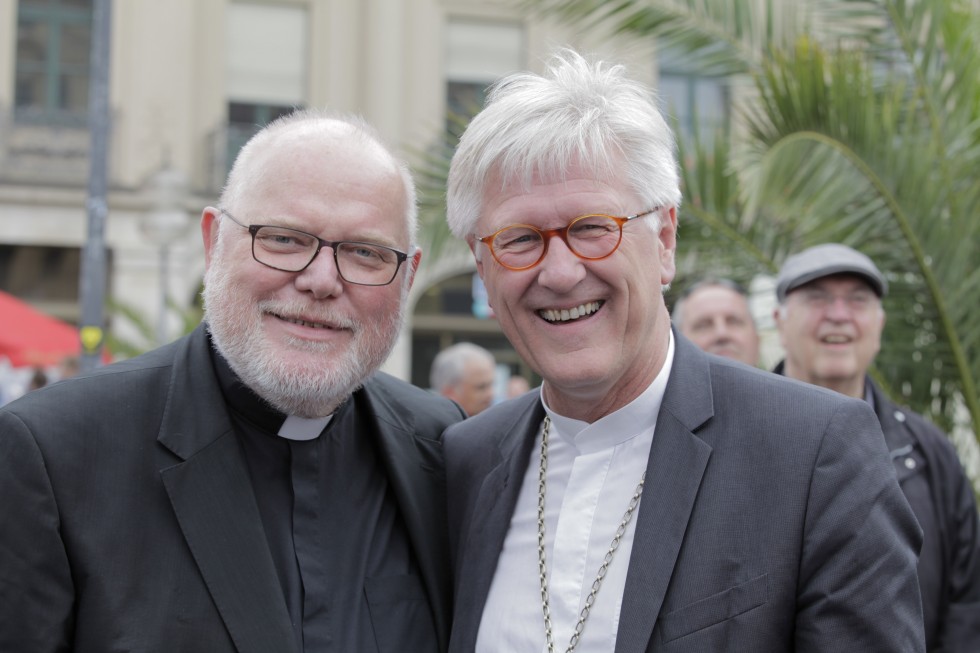
Cardinal Reinhard Marx, Chairman of the German Bishops’ Conference, and Bishop Dr. Heinrich Bedford-Strohm, Chairman of the Council of the Evangelical Church in Germany
